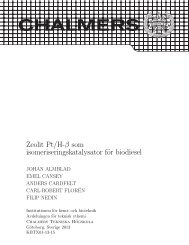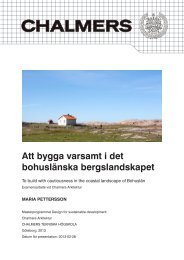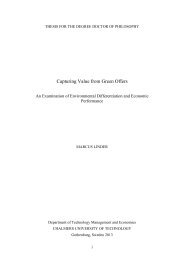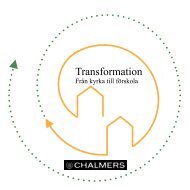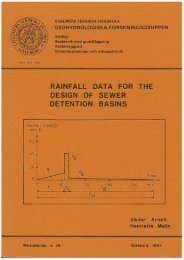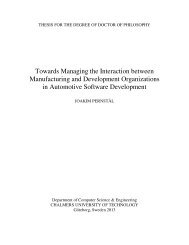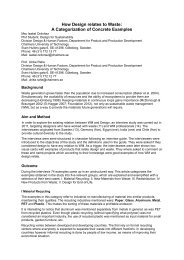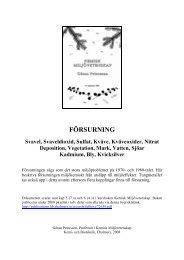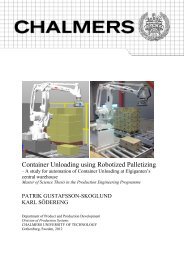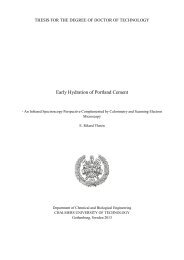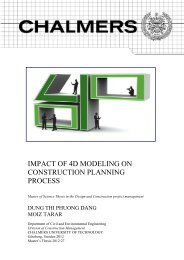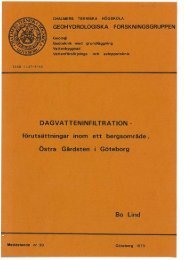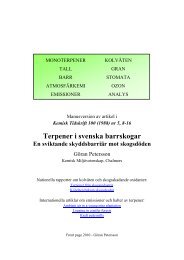A computational grammar and lexicon for Maltese
A computational grammar and lexicon for Maltese
A computational grammar and lexicon for Maltese
Create successful ePaper yourself
Turn your PDF publications into a flip-book with our unique Google optimized e-Paper software.
2.2 Morphology<br />
2.2.1 Smart paradigms<br />
A morphological paradigm describes the complete set of word <strong>for</strong>ms which are associated with<br />
a lexeme, such as the conjugations of a verb <strong>and</strong> the declensions on a noun. In GF, a paradigm<br />
translates to a function which takes one or more representative word <strong>for</strong>ms of a lexeme <strong>and</strong><br />
constructs a complete inflection table <strong>for</strong> it. For example calling the strong verb paradigm<br />
function with the lemma waqaf (‘he stopped’) like so:<br />
strongV "waqaf"<br />
gives the full inflection table below:<br />
s (VPerf (AgP1 Sg)) : waqaft<br />
s (VPerf (AgP1 Pl)) : waqafna<br />
s (VPerf (AgP2 Sg)) : waqaft<br />
s (VPerf (AgP2 Pl)) : waqaftu<br />
s (VPerf (AgP3Sg Masc)) : waqaf<br />
s (VPerf (AgP3Sg Fem)) : waqfet<br />
s (VPerf AgP3Pl) : waqfu<br />
s (VImpf (AgP1 Sg)) : nieqaf<br />
s (VImpf (AgP1 Pl)) : nieqfu<br />
s (VImpf (AgP2 Sg)) : tieqaf<br />
s (VImpf (AgP2 Pl)) : tieqfu<br />
s (VImpf (AgP3Sg Masc)) : jieqaf<br />
s (VImpf (AgP3Sg Fem)) : tieqaf<br />
s (VImpf AgP3Pl) : jieqfu<br />
s (VImp Sg) : ieqaf<br />
s (VImp Pl) : ieqfu<br />
s (VPresPart (GSg Masc)) : wieqaf<br />
s (VPresPart (GSg Fem)) : wieqfa<br />
s (VPresPart GPl) : wieqfin<br />
s (VPastPart (GSg Masc)) : mwaqqaf<br />
s (VPastPart (GSg Fem)) : mwaqqfa<br />
s (VPastPart GPl) : mwaqqfin<br />
Natural languages typically have many paradigms which a lexeme may follow — often<br />
hundreds — <strong>and</strong> having to manually select the correct paradigm <strong>for</strong> each entry in a <strong>lexicon</strong> can<br />
be laborious. A smart paradigm (Détrez & Ranta, 2012) is a meta-paradigm which inspects the<br />
given base <strong>for</strong>m of a lexeme <strong>and</strong> tries to infer which lower-level paradigm applies. In cases<br />
where the correct paradigm simply cannot be determined, more word <strong>for</strong>ms are given <strong>for</strong> discrimination.<br />
In general, the average number of <strong>for</strong>ms needed is a measure of the predictability<br />
of the morphology in a language. The paradigms made available as part of the <strong>Maltese</strong> resource<br />
<strong>grammar</strong> are listed in appendix A.<br />
19


